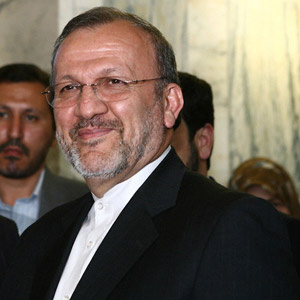Caspian Sea and Our Territorial Integrity
By Seyyed Sadeq Kharrazi

How much is Iran’s share of the Caspian Sea? This question has become more important after the recent statements of Manouchehr Mottaki, Iran’s Foreign Minister.
A few days ago Mr. Mottaki said: “Iran’s share of this sea [the Caspian] has never been 50 percent. The figure is not logical, nor has there been any accord about it” (IRNA news agency, 1st of January, 2008).
What Mr. Mottaki has said about non-existence of any agreement on Iran’s share in the Caspian Sea is fully correct. Of course not only the enemies of Iran, but some friends inside the country advocated the 50 percent share earnestly.
Maybe this idea has originated from a passage of 1940 agreement between Iran and the Soviet Union which calls Caspian “Iran-Soviet Union Sea”.
Exactly because of this passage, Iran’s official stance has been joint use of Caspian’s bed and surface, while no agreement refers to joint use of this sea.
After Soviet Union’s dissolution, the Islamic Republic of Iran insisted that since according to the existing agreements Caspian is the Iran-Soviet Union Sea, firstly these agreements are valid as long as new agreements have not been concluded by Caspian littoral states. Secondly, these countries must have an equal share. This stance is noticeable in letters sent by Iran to UN’s Secretary General and printed as the documents of the organization.
The Caspian Sea summit that was held in Tehran a few months ago disregards 1921 and 1940 agreements. Also for the first Iran acceded not to mention these agreements in an official document. In fact, Tehran summit was an end to the idea of joint use of the Caspian Sea while it doubted the previous declarations.
Not only the document released in Tehran Caspian Sea summit contains numerous legal and political flaws and slights honest and well-intentioned supporters of Iran’s national interests, but it also sacrifices Iran’s official policy of distinction between liberating movements and terrorism, a policy that Iran has firmly insisted on in international organizations and meetings.
In another part of his remarks Mr. Mottaki has said: “Iran has never exploited more than 11.3 percent of the Caspian Sea.” (IRNA news agency, 1st of January, 2008)
The question here is what is the necessity of pointing to this matter at the present situation?
Does it benefit our country to state that Iran didn’t act freely in the Caspian Sea before the Islamic Revolution? Doesn’t it fuel allegations of Iran’s enemies? Does it strengthen Iran’s stance through the highly complicated negotiations on compilation of Caspian Sea’s legal regime or it just puts Iranian negotiators to trouble? Are Mr. Mottaki’s statements a prelude to Iran’s agreement with Azerbaijan and Turkmenistan to determine our share of the Caspian Sea?
Surely the Foreign Minister is aware that his remarks will become a basis for future claims and territorial integrity is an issue that falls under the parliament’s authority, not the government.
Such statements are against maxims of foreign policy set by the Supreme Leader, Ayatollah Khamenei: Dignity, Wisdom, and Expediency.

